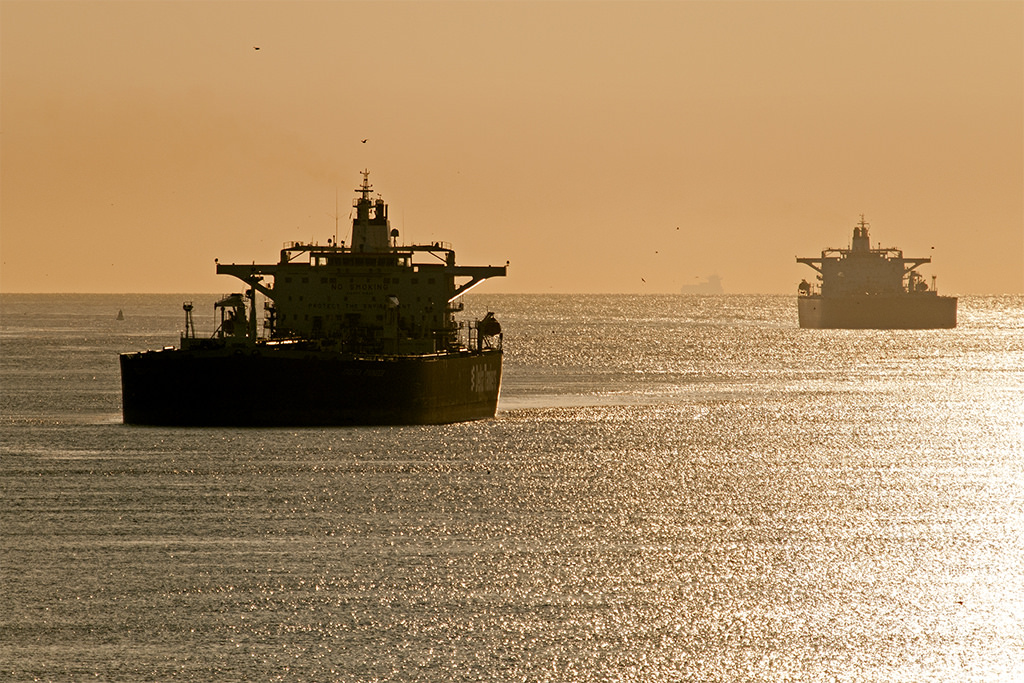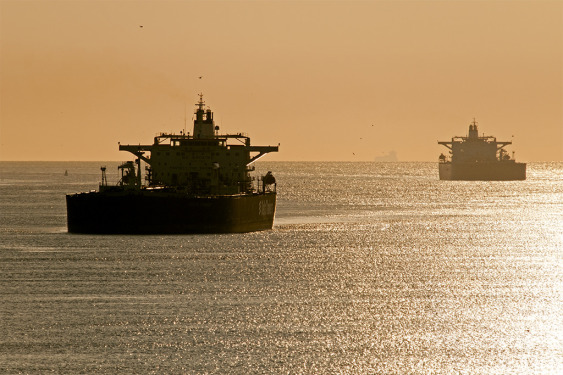“This is more fun than I’ve ever had in my life.” That’s how activist Don Steinke summed up his tireless work opposing a giant oil train terminal on the Columbia River to reporters. His enthusiasm has been contagious: communities all around the Northwest have been chalking up big wins against big oil.
Stopping oil trains has been a highlight for the Thin Green Line, the opposition movement to fossil fuel development in Cascadia. Since our winter update, the very project Don was fighting—the proposed Vancouver Energy oil terminal—collapsed. Sightline’s Director of Energy Finance, Clark Williams-Derry, and I wrote about the project’s coup de grâce and Sightline’s key contributions to the victory. And the LA Times and Oregon Public Broadcasting featured Sightline in its coverage of the project’s implosion.
Our work to defend the Thin Green Line extends well beyond oil trains. To cite one example, Clark and I co-authored an examination of another Columbia River project, the enormous methanol refinery proposed for Kalama. We showed that Kalama methanol would likely fuel China’s burgeoning fleet of cars and trucks, making the project a genuine carbon Bigfoot. We were also featured in two TV news pieces on the Trump Administration loosening rules for oil-by-rail shipments, and we talked to the media about Trump Administration’s plans to allow offshore oil drilling.
Meanwhile, Clark continued his work to dethrone King Coal, showing that the Trump era has only yielded further disappointments for the coal industry—despite its bizarre connections to Russian oligarchs. And things are scarcely brighter in Canada, where a coal export scheme slated for BC’s Fraser River faces a slew of obstacles. He also made the case that coal is being killed by its opposite number: clean energy and efficiency. And he helped volunteer researcher John Abbotts enumerate the serious health impacts of hosting a coal terminal.
Researcher Tarika Powell has been just as busy. She got the whole team together to write a 2017 retrospective for the Thin Green Line. Plus, Tarika and I published a special post-election analysis on the ways that the fossil fuel fights are shaping Cascadian politics. Tarika has been on the stump a lot as well. In recent months, she gave a high-profile talk on environmental justice at the University of Puget Sound, participated in a fracked-gas forum in Everett, Washington, a lecture on LNG at Western Washington University, and provided expert witness testimony in Tacoma for two activists who had locked themselves to construction equipment at the site of an LNG project. And she’s continuing to make the case that fracked gas is a dead end for the Northwest.
I teamed up with Britany Kee’ ya aa. Lindley, a law student at Seattle University, to write about a Puget Sound refinery expansion that would worsen air quality in Northwest national parks. I also collaborated with Paelina DeStephano to write about the shadowy conservative groups opposing climate action in Oregon.
As explained in an excellent article at Think Progress, the Northwest is no longer just defending itself against ill-advised dirty energy projects. By reforming its land-use laws, the region is in effect building a green wall of resistance to fossil fuels. That’s what happened recently in Tacoma, where a unanimous city council passed a comprehensive (albeit temporary) ban on new fossil fuel development in the city’s industrial zone. The new law gives policymakers breathing room to develop a more detailed zoning strategy, perhaps similar to the flagship effort in Portland, to lock out unwanted coal, oil, and gas projects.
What’s happening in Cascadia is clear: communities are slamming the door shut on dirty energy and imagining a new future for themselves—a way of life centered on clean energy and environmental justice. A way of life that can last.
What could be more fun than that?











Don Steinke
Thanks Eric!
Now we are working for Initiative 1631 to invest in Clean Air and Clean Energy by placing a fee on corporate polluters.
Volunteers are needed statewide. Search for the Alliance for Jobs and Clean energy and get plugged in.